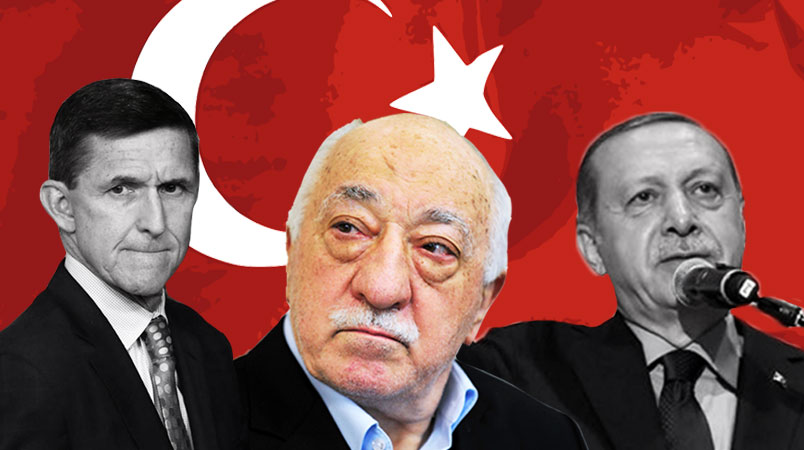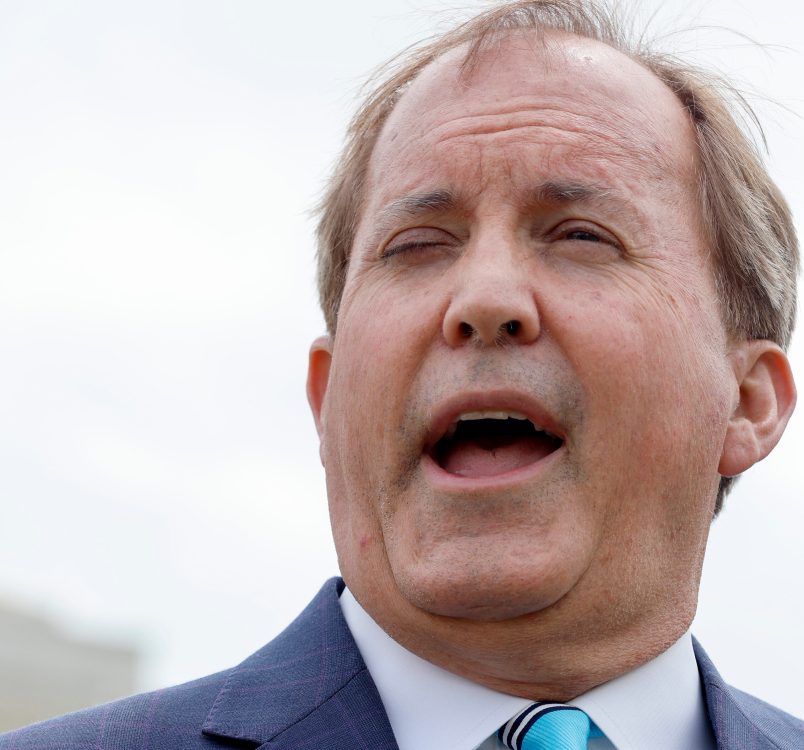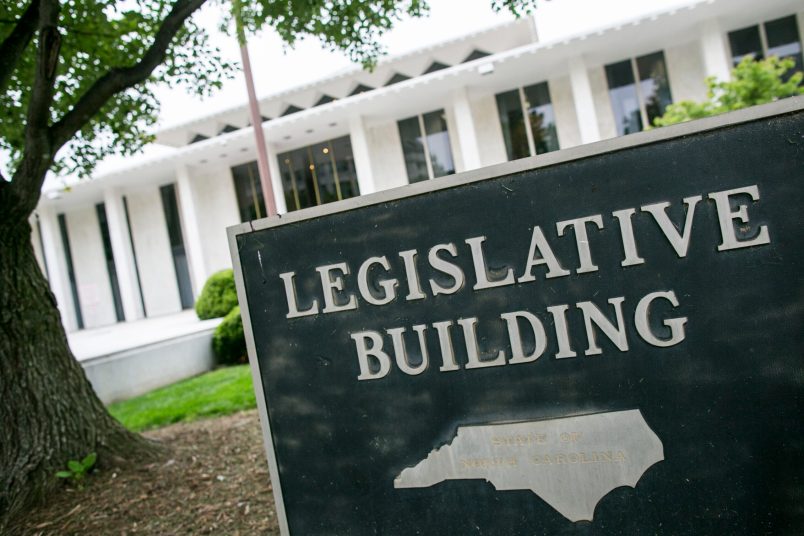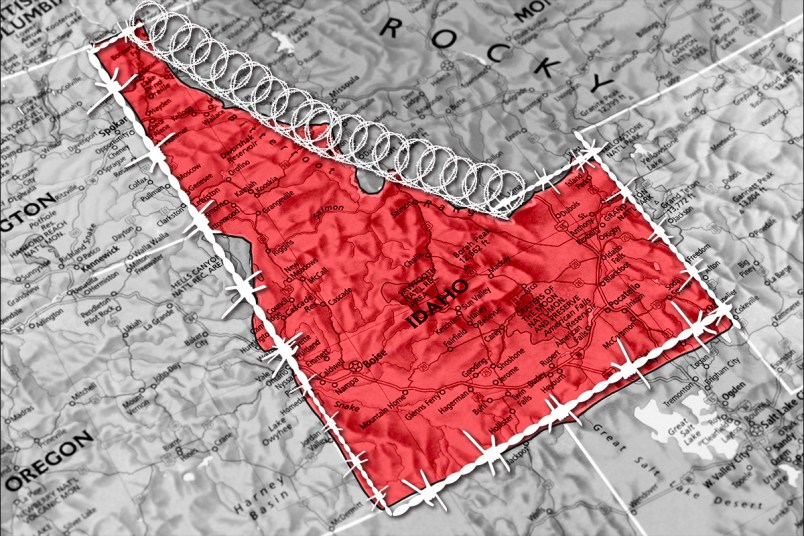The focus of former national security adviser Mike Flynn’s tangle of business dealings with Turkey is one man: Fethullah Gulen, an ailing septuagenarian Muslim cleric who lives in a Pennsylvania compound.
Plenty of ink has been spilled about the hundreds of thousands of dollars Flynn received to produce negative PR materials about Gulen and about Flynn’s alleged discussions with Turkish officials about forcibly removing him from the U.S.
What’s received less attention is why Turkey would take such extraordinary steps to take down the aging cleric, and why President Recep Tayyip Erdogan’s government thought Flynn would be able to facilitate them.
The former top U.S. intelligence official’s well-compensated work for Turkey is just one tentacle of Special Counsel Robert Mueller’s sprawling investigation into Russia’s interference in the 2016 election. But it speaks directly to the central question of how foreign actors may have attempted to influence the actions of top Trump campaign figures.
TPM spoke to five Turkey experts to get a sense of Erdogan’s anti-Gulen crusade in the U.S., and how Flynn fit into those schemes.
Why is Turkey so desperate to discredit Gulen?
Flynn is hardly the first American that Turkey has used to lend credence to Erdogan’s campaign against the man he believes orchestrated a failed July 2016 coup against him. In the past few years, Erdogan’s Justice and Development Party (AKP) has launched a lobbying blitz in the U.S. aimed at discrediting Gulen and his Hizmet, or “service,” movement.
Firms like Amsterdam & Partners and Flynn’s consulting firm, Flynn Intel Group, receive lucrative contracts to paint the cleric—who promotes a moderate, pro-market version of Islam through a worldwide network of well-funded schools and charitable institutions—as a suspect actor bent on undermining Turkey’s democracy. This effort has been aided by anti-Islam groups like ACT! for America and outlets like Breitbart News, which routinely characterize Gulen as the head of a “shadowy and corrupt cult.”
Aaron Stein, a Turkey expert at the non-partisan Atlantic Council, told TPM that Berat Albayrak, Erdogan’s son-in-law and Turkey’s energy minister, is “behind” these lobbying efforts. Albayrak attended a Sept. 19, 2016 meeting with Flynn Intel Group, where discussions of removing Gulen from the U.S. were reportedly first raised.
“There is documented evidence that he oversees efforts within the United States through cut-out organizations to funnel money to lobbyists and PR firms who try to change the narrative on Gulen,” Stein said of Albayrak. “That definitely happens.”
Experts caution that there are legitimate concerns about financial misdeeds by some Gulen-linked institutions and about the secretive ways in which the cleric leverages political influence in Turkey through his network. But they say that Erdogan’s crusade against Gulen, who has lived in the U.S. since 1999, is primarily about self-preservation.
The two men were political allies until about 2010, when Erdogan’s consolidation of power prompted what former U.S. Ambassador to Turkey James Jeffries described to TPM as a “series of ever more dramatic confrontations.” By 2013, these involved politically-motivated prosecutions of Erdogan allies by Gulen-linked prosecutors and a subsequent purging of Gulenists from the judiciary.
Why hasn’t the U.S. extradited the cleric?
In an Election Day editorial in The Hill penned on behalf of his Turkish lobbying client, Flynn described Gulen as a “shady Islamic mullah” behind the coup attempt who should immediately be turned over to “our NATO ally.”
This closes mirrors Turkey’s stance on how “perplexing and deeply frustrating” it is that the U.S. has not yet turned over the man who “masterminded” the effort to overthrow Erdogan’s government.
The actual narrative is not so clear. Experts told TPM evidence that the U.S. Justice Department helped gather suggests that Gulenists played a significant role in the coup, but that Turkey has failed to prove that he was personally behind it. The attempted putsch was most likely the work of a coalition of groups, they said.
David Tittensor, an Australian religion professor who authored a book on the Gulen movement, said the evidence “didn’t meet the standard to initiate an extradition and warrant process” through the U.S. State Department and judicial system. Some of the alleged Gulen-linked coup plotters say they were tortured or that their confessions were forced, Tittensor noted.
He said the impasse with the DOJ could have prompted officials to hold secret talks with Flynn.
“Possibly the fact that these kind of talks were happening speaks to the lack of an evidence base that has been provided thus far and that they were looking for an alternative in order to get what they want, which is to get Gulen out of the U.S. and back to Turkey,” Tittensor said.
Flynn pushed Turkey’s line on Gulen in exchange for cash
Flynn was forced to belatedly register as a foreign agent earlier this year for accepting $530,000 from Turkish businessman Ekim Alptekin to produce negative PR materials about Gulen.
Special Counsel Robert Mueller is reportedly investigating Flynn Intel Group’s work for Alptekin, who has close ties to Erdogan’s government. Mueller’s team is also reportedly probing two alleged meetings in New York between Turkish officials and Flynn about forcibly removing Gulen from the U.S.
Former CIA Director Jim Woolsey told the Wall Street Journal that he was startled by the plans to “whisk” Gulen away that he heard at the first meeting on Sept. 19, 2016, which was attended by Alptekin, Turkey’s energy and finance ministers, and members of Flynn Intel Group.
Discussions of a $15 million payout for Flynn and of possibly “transporting Mr. Gulen on a private jet to the Turkish prison island of Imrali” did not unfold until the second discussion in December, according to the Journal’s reporting.
Both sides have stridently denied that any such discussions occurred.
What if Turkey gets its wish?
Gulen is currently the “pawn in the middle” of U.S.-Turkey relations, as George Washington University international affairs professor Scheherazade Rehman put it, and it’s not clear that Erdogan wants his return as much as he professes to.
For one, Gulen’s presence here provides negotiating leverage, as Jeffries, the former U.S. ambassador, pointed out.
“It gives them a good talking point to put the U.S. under pressure,” Jeffries said. “And the Turks like that, that’s how they do foreign policy.”
Though Jeffries said the Turkish people and government do want answers for the coup, which resulted in the deaths of some 300 people, other experts noted that Gulen’s return through traditional legal channels, which remains unlikely, could undermine the Erdogan administration’s account of how the coup unfolded.
“If he comes back then that will force an actual trial,” said Josh Hendrick, a Loyola professor on Islamic political identity who wrote a book on Gulen. “It will force a ‘prove it.’ All the inconsistencies in the narrative could come out.”
Erdogan has used the coup as cover to fire and jail his political opponents and consolidate power.
Did Flynn try to advance the extradition?
Not long after Trump and Flynn entered the White House, the FBI was reportedly asked to conduct a new review of Turkey’s extradition request. Though NBC reported that the FBI turned it down because there was no additional evidence to alter the Obama administration’s assessment of it, it remains unclear if Flynn or State Department officials made the request.
When questioned on the matter by House Judiciary Committee member Zoe Lofgren (D-CA) at a hearing this week, Attorney Jeff Sessions said only that he knew the “Turkish government continued to press the federal government” on Gulen’s return and that though his department “had a role to play in that,” he was unable to discuss it.
The Atlantic Council’s Stein said it was not necessarily surprising that a new administration would want a review of such a sensitive situation.
“What is noteworthy is the reasons why they asked for it,” he said. “Was Mike Flynn on the take and was he fulfilling a contractual quid pro quo?”
Correction: This piece has been updated to correct an editing error. Erdogan, not Gulen, has used the coup as cover to fire and jail his political opponents and consolidate power.






